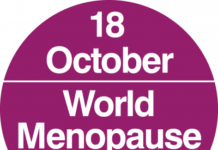Welsh people are not following the NHS recommended guidelines on exercise, a new survey reveals.
When quizzed about their exercise routines, a shocking 52% of Welsh people revealed that they NEVER do strength exercises and 28% NEVER do aerobic exercise.
The NHS recommends that adults aged 19 to 64 should do at least 150 minutes of moderate aerobic activity a week and strength exercises on 2 or more days a week [source].
However, survey data shows that almost two-thirds of Brits aren’t following these guidelines (60%). On average, Welsh people spend just 134 minutes doing aerobic activity and do just 1.4 strength sessions per week, meaning they fall under the NHS guidelines on both accounts.
When it comes to attitudes towards fitness, the results are also surprising.
Just under half of Welsh people believe they should do more exercise (44%), yet 1 in 3 don’t know how much exercise they should be doing.
The Welsh are the least motivated to exercise in the UK, with 35% listing lack of motivation as a barrier to exercise. 1 in 4 said their lack of enjoyment in exercise is also a barrier.
Wales was the only area to rank appearance as the second biggest benefit of exercise, compared to the rest of the UK who ranked mental health, life expectancy and joint health as higher advantages.
However, it’s not all doom and gloom for Wales. Welsh people do the most swimming and watersports compared to the rest of the UK, with over a quarter (27%) of Welsh regularly partaking, which is above the UK average of 21%. Unsurprisingly, rugby-loving Welsh people play the sport four times as much as the rest of the UK.
Whilst Wales recognises the direct health benefits of exercise, such as improved heart health (51%), less than 10% recognise the indirect impact that exercise could have on their local NHS facilities such as their GP or hospital.
The Onepoll survey was commissioned by Patient Claim Line to understand attitudes towards exercise and health.
Commenting on the survey data, Susan Healey, Senior Solicitor at Patient Claim Line, said:
“The NHS has taken on a new approach to healthcare called ‘Patient Activation’, which aims to empower patients with the confidence, knowledge and skills to manage their own health. However, time pressure, family commitments and a lack of access to good and consistent healthcare resources are real and credible barriers to maintaining your health.”
“Many people don’t realise the connection between your individual health and NHS resources,” Healey continues. “Generally speaking, a healthier population will need less medical attention and so will have less strain on the NHS. By keeping yourself healthy and active, you could improve your recovery time from common illnesses and surgery, and indirectly impact waiting times at your GP, which will save the NHS money. This means more resource for people with more serious conditions.”
“Instead of the usual focus on the NHS not having enough funding, society could focus on the small changes the individual could make to save the NHS money.”
Dr Jessicarr Moorhouse, an NHS doctor and Personal Trainer, is an advocate for exercise as preventative medicine. Dr Moorhouse comments:
“Our perception of exercise is crucial to our levels of activity. Many of us form negative associations with exercise from our childhood experiences of school PE and, especially for young women, this can lead to ongoing inactivity (source: NHS).”
“In my opinion, we need to see a social, economic and cultural shift towards more active lifestyles. Making exercise convenient is crucial, so that exercise is not considered a chore. Robust walking and cycling infrastructure will go some way, as will NHS-led community exercise initiatives.”
For further information : https://www.patientclaimline.com/
Welsh people are not following the NHS recommended guidelines on exercise, a new survey reveals.
When quizzed about their exercise routines, a shocking 52% of Welsh people revealed that they NEVER do strength exercises and 28% NEVER do aerobic exercise.
The NHS recommends that adults aged 19 to 64 should do at least 150 minutes of moderate aerobic activity a week and strength exercises on 2 or more days a week [source].
However, survey data shows that almost two-thirds of Brits aren’t following these guidelines (60%). On average, Welsh people spend just 134 minutes doing aerobic activity and do just 1.4 strength sessions per week, meaning they fall under the NHS guidelines on both accounts.
When it comes to attitudes towards fitness, the results are also surprising.
Just under half of Welsh people believe they should do more exercise (44%), yet 1 in 3 don’t know how much exercise they should be doing.
The Welsh are the least motivated to exercise in the UK, with 35% listing lack of motivation as a barrier to exercise. 1 in 4 said their lack of enjoyment in exercise is also a barrier.
Wales was the only area to rank appearance as the second biggest benefit of exercise, compared to the rest of the UK who ranked mental health, life expectancy and joint health as higher advantages.
However, it’s not all doom and gloom for Wales. Welsh people do the most swimming and watersports compared to the rest of the UK, with over a quarter (27%) of Welsh regularly partaking, which is above the UK average of 21%. Unsurprisingly, rugby-loving Welsh people play the sport four times as much as the rest of the UK.
Whilst Wales recognises the direct health benefits of exercise, such as improved heart health (51%), less than 10% recognise the indirect impact that exercise could have on their local NHS facilities such as their GP or hospital.
The Onepoll survey was commissioned by Patient Claim Line to understand attitudes towards exercise and health.
Commenting on the survey data, Susan Healey, Senior Solicitor at Patient Claim Line, said:
“The NHS has taken on a new approach to healthcare called ‘Patient Activation’, which aims to empower patients with the confidence, knowledge and skills to manage their own health. However, time pressure, family commitments and a lack of access to good and consistent healthcare resources are real and credible barriers to maintaining your health.”
“Many people don’t realise the connection between your individual health and NHS resources,” Healey continues. “Generally speaking, a healthier population will need less medical attention and so will have less strain on the NHS. By keeping yourself healthy and active, you could improve your recovery time from common illnesses and surgery, and indirectly impact waiting times at your GP, which will save the NHS money. This means more resource for people with more serious conditions.”
“Instead of the usual focus on the NHS not having enough funding, society could focus on the small changes the individual could make to save the NHS money.”
Dr Jessicarr Moorhouse, an NHS doctor and Personal Trainer, is an advocate for exercise as preventative medicine. Dr Moorhouse comments:
“Our perception of exercise is crucial to our levels of activity. Many of us form negative associations with exercise from our childhood experiences of school PE and, especially for young women, this can lead to ongoing inactivity (source: NHS).”
“In my opinion, we need to see a social, economic and cultural shift towards more active lifestyles. Making exercise convenient is crucial, so that exercise is not considered a chore. Robust walking and cycling infrastructure will go some way, as will NHS-led community exercise initiatives.”
This article on Medical Negligence Claims will also be useful
Help keep news FREE for our readers
Supporting your local community newspaper/online news outlet is crucial now more than ever. If you believe in independent journalism, then consider making a valuable contribution by making a one-time or monthly donation. We operate in rural areas where providing unbiased news can be challenging. Read More About Supporting The West Wales Chronicle





















